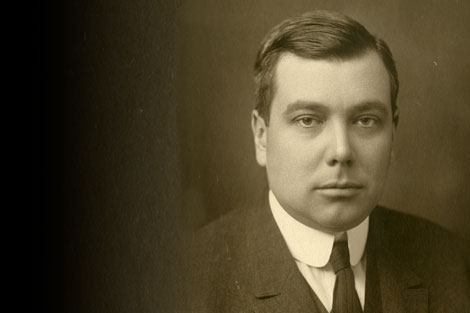In late 1921, with long-awaited funding of $1.6 million from the Rockefeller Foundation, an independent Harvard School of Public Health succeeded the Harvard-MIT School for Health Officers. Harvard University President Abbott Lawrence Lowell empowered a special committee to undertake the massive project of planning departmental composition and curriculum for the newly endowed degree-granting institution.
No one played a larger role in this exhilarating transition than Roger Irving Lee, Henry K. Oliver Professor of Hygiene, who chaired the three-member committee. “Dr. Lee has been called ‘the father’ of the Harvard School of Public Health both because the School was ‘his baby’ and because he was able to foresee what this infant would be when it grew to maturity,” read an article in the November 1949 Harvard Public Health Alumni Bulletin. In addition to Lee, the committee’s members were Milton Rosenau, one of the School’s three founders, and future dean Cecil Drinker.
Lee was prescient on a wide range of issues. He voiced early support for admitting women, foresaw the relationship between public health and other social sciences, including economics, envisioned a separate department of what was then known as child hygiene, committed the School to industrial health (paving the way for HSPH’s ongoing contributions to workplace safety), and recognized the importance of working hand in hand with community services.
Along with being a key architect of the HSPH that exists today, Lee was known for his kindness. From autumn of 1922 to the spring of 1923, he served as acting dean while Dean David Linn Edsall was occupied with educational surveys in Europe. On December 13, 1922—faced with a busy administrative agenda—his thoughts nonetheless turned to students, and he asked his secretary to be sure they were “looked out for” and had “as many invitations as possible” during the holiday season.
“[W]hen this busy man can make it his job to see that students are taken care of during the holiday season, the sensitivity of his character is thus established,” the Bulletin piece continued. “If the humanism of this man emerges even when he is most involved with the plans for a complex endeavor, then his character begins to partake of greatness.”
